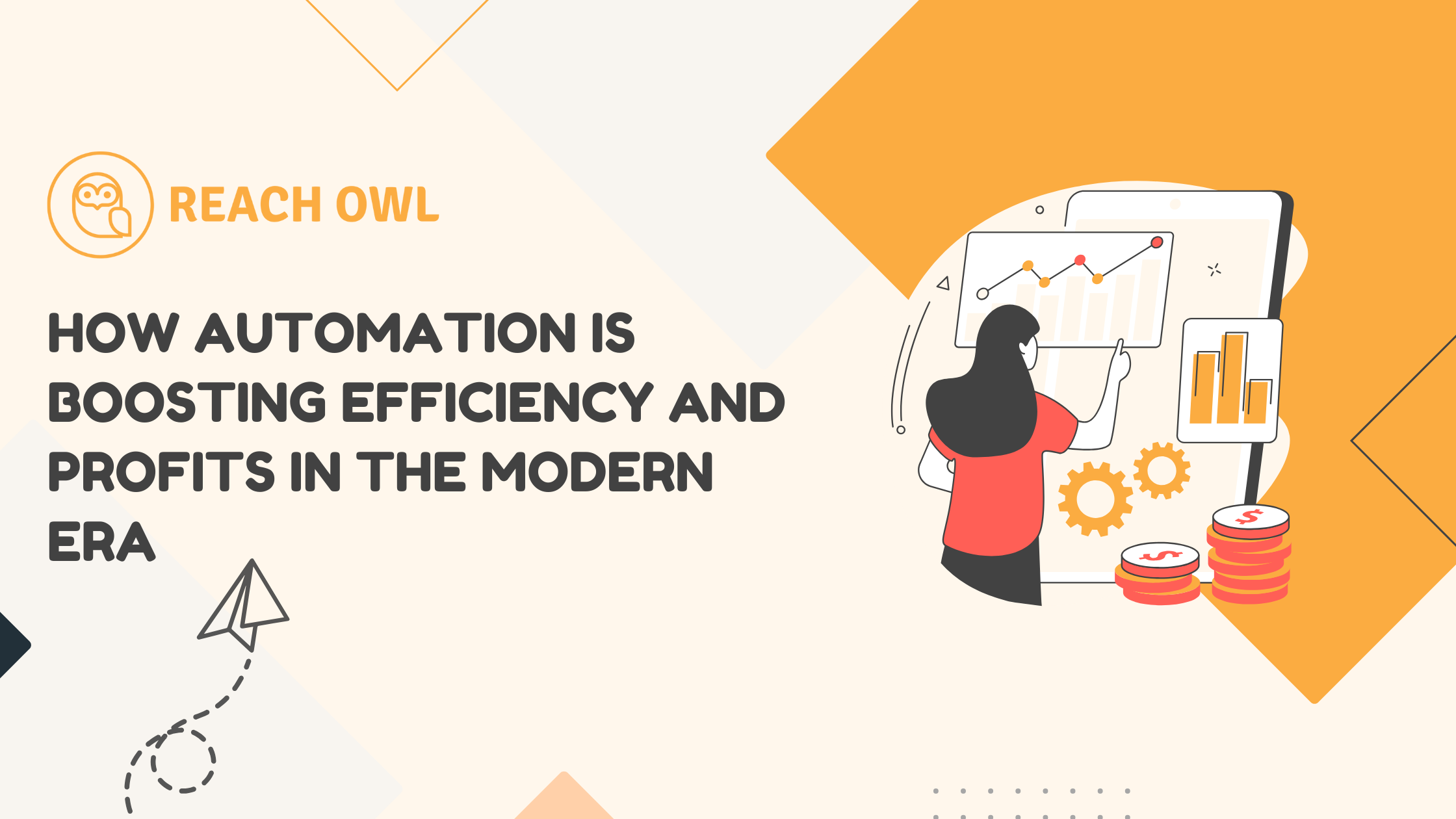Automation is making big changes as it uses advanced technologies like artificial intelligence and machine learning to transform how industries work. This is helping companies be more productive and profitable.
This blog explores the profound impact of automation on businesses, delving into the ways it supercharges productivity and profitability.
1. Understanding the Automation Generation
The automation generation is a time when businesses widely use automated processes and technologies in their operations. It’s not just a luxury anymore; it’s necessary to stay competitive in today’s fast-changing markets.
2. Streamlining repetitive tasks
Automation is great at dealing with boring and repetitive tasks. When businesses automate routine processes, it lets human workers concentrate on more important and creative tasks that add value. Whether it’s data entry, handling customer service questions, or managing inventory, automation makes operations smoother, reduces mistakes, and improves efficiency.

3. Enhancing the Customer Experience
Automation is important for making the customer experience better. AI-powered chatbots are changing customer service by quickly answering questions, dealing with common issues, and even personalizing interactions. Automated email campaigns, based on customer behavior, make sure communication is timely and relevant, building stronger relationships and brand loyalty.
4. Optimizing Decision-Making with Data
In the automation generation, data is king, and automation is the solution to unleashing its full power. Automated analytics tools handle large amounts of data, providing real-time insights into how a business is doing, understanding customer behavior, and recognizing market trends. This data-driven decision-making helps businesses make informed choices, improve strategies, and stay ahead of the competition.
5. Improving Operational Efficiency
Automation optimizes operational workflows, reducing delays and making operations more efficient. Whether it’s managing the supply chain or handling production, businesses can use automation to make sure things run more smoothly. This speeds up production and lowers the chance of mistakes, which, in the end, improves the overall financial results.
6. Personalizing Marketing Strategies
In the automation generation, marketing has evolved from general approaches to super-personalized strategies. Automated marketing tools analyze customer data to provide specific content, personalized suggestions, and customized offers. This personalized level makes marketing campaigns more effective, increasing customer involvement and, as a result, increasing profitability.

7. Advance Innovation
Automation is an innovation. When businesses automate routine tasks, it allows their employees to concentrate on creative and innovative projects. Additionally, automation technologies, like machine learning algorithms, keep evolving and adapting, fostering ongoing innovation within organizations.
8. Ensuring Compliance and Risk Management
In industries where following rules is very important, automation is a strong solution to make sure regulations are met. Automated systems can monitor and check activities, create reports on compliance, and lower the chance of human mistakes. This not only protects the business from legal issues but also promotes a culture of openness and responsibility.
9. Facilitating Remote Work
Automation technologies have made it easier for remote work to become more common. With virtual collaboration tools and automated project management platforms, businesses can smoothly handle teams working from different locations. Automation ensures that communication, assigning tasks, and tracking progress stay efficient, no matter the geographical distances involved.
10. Reducing Costs and Increasing Profitability
Automation, at its heart, is about doing more with less. When businesses automate tasks that would normally demand a lot of human effort, they can greatly reduce operational costs. This cost-saving aspect directly contributes to higher profitability, turning automation into not just a technological upgrade but a strategic investment.
Challenges and Considerations
Even though automation brings significant benefits, businesses need to handle the challenges associated with its implementation. These challenges involve concerns about job losses, cybersecurity risks, and the initial costs of adopting automation technologies. Addressing these challenges requires a careful strategy, including training employees with new skills, setting up strong cybersecurity measures, and weighing the initial costs against the long-term advantages.
The automation generation is transforming the business scene, offering incredible opportunities for those who embrace its possibilities. Whether it’s streamlining workflows, improving customer experiences, driving innovation, or increasing profitability, automation is a force multiplier in the hands of forward-thinking businesses.
In this generation of automation, finding a balance between technological progress and human-centred values is required for businesses. Automation shouldn’t replace human creativity but should be viewed as a tool that enhances human capabilities and allows more time for meaningful and strategic aims. By accepting the potential of the automation generation, businesses can not just survive but grow in the changing of the digital generation.

